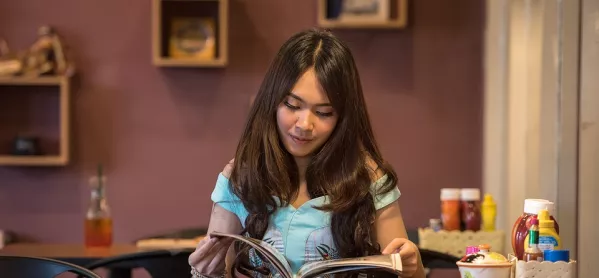There has been a huge rise in home education among pupils at risk of exclusion, with increasing numbers choosing this rather than alternative provision, MPs heard today.
David Whitaker, executive principal of the Barnsley-based Springwell Special Academy and Springwell Alternative Academy, said that the number of children on the home-education register in his local authority had risen from 60 to 300 in the last three years.
Addressing members of the Commons education select committee, he added that the reason given for this choice was often “dissatisfaction with school”.
He suggested that this might be a subtle way of removing pupils from the school roll: a practice known as “off-rolling”.
“A head of year might hint that there’s another option here: elective home education,” he said.
Home education benefits
Asked by MPs whether this was related to the accountability process, he said: “There’s got to be a reason, and there’s got to be a pressure in the system.
“Parents might say, ‘I’m sick and tired of exclusions, I’m sick and tired of getting letters.’”
Claire George, head of education for Peterborough pupil-referral service, said that she would expect there to be between 90 and 95 pupils being home educated in her borough. At the moment, there are 149.
Other key points in the committee’s hearing on alternative provision today included:
- Vulnerable children are being taught by unqualified teachers
Robert Halfon, chair of the education select committee and former minister for schools, said: “I find it extraordinary that children with serious difficulties can be taught by an unqualified teacher. They need the most support. How is that allowed?”
- But headteachers of alternative provision believe that this is a desirable state of affairs
“Often, teachers with QTS can’t relate to these pupils,” Ms George said. Joanne Southby, executive head of the London South East Academies Trust, said: “You can have the best-qualified staff - they may have a string of qualifications - but they’re not able to engage with young people.”
- Also, the recruitment crisis is affecting alternative provision even more than the mainstream
“I can put an advert in Tes and we might get four or five people applying, where you’d get 60 for a mainstream school,” said Mr Whitaker.
- The introduction of Progress 8 means that headteachers are more likely to exclude pupils
“I’ve had heads say to me, ‘We need more pupil-referral unit places, because of Progress 8,” said Ralph Holloway, who manages services for pupils with special educational needs for Essex County Council. “Which is completely missing the point.”
- Ofsted should refuse to rate schools ‘outstanding’ unless they take back pupils from alternative provision
Emma Bradshaw, headteacher of The Limes College, a pupil-referral unit in south-east London, also called on schools to take in other children who struggle in mainstream education.
- There are too many unregistered providers of alternative provision
“I think there are a serious number of children who are in the corners somewhere, doing a couple of hours a week unchecked,” Ms George said. “Nobody knows who they are. They’re probably coming out with very, very poor outcomes.”
- People tend to view permanent exclusion as a punishment
Ms Southby said that, when children are excluded because their mainstream schools simply do not want them there: “For those children, pupil-referral units become a form of punishment, because their needs aren’t being met. It’s almost like being in prison: you’ve been sent somewhere to be punished.”
- The sector needs a new name
Most teachers in pupil-referral units agree that “alternative provision” suggests failure. They would prefer “specialist schools”.
Want to keep up with the latest education news and opinion? Follow Tes on Twitter and like Tes on Facebook




